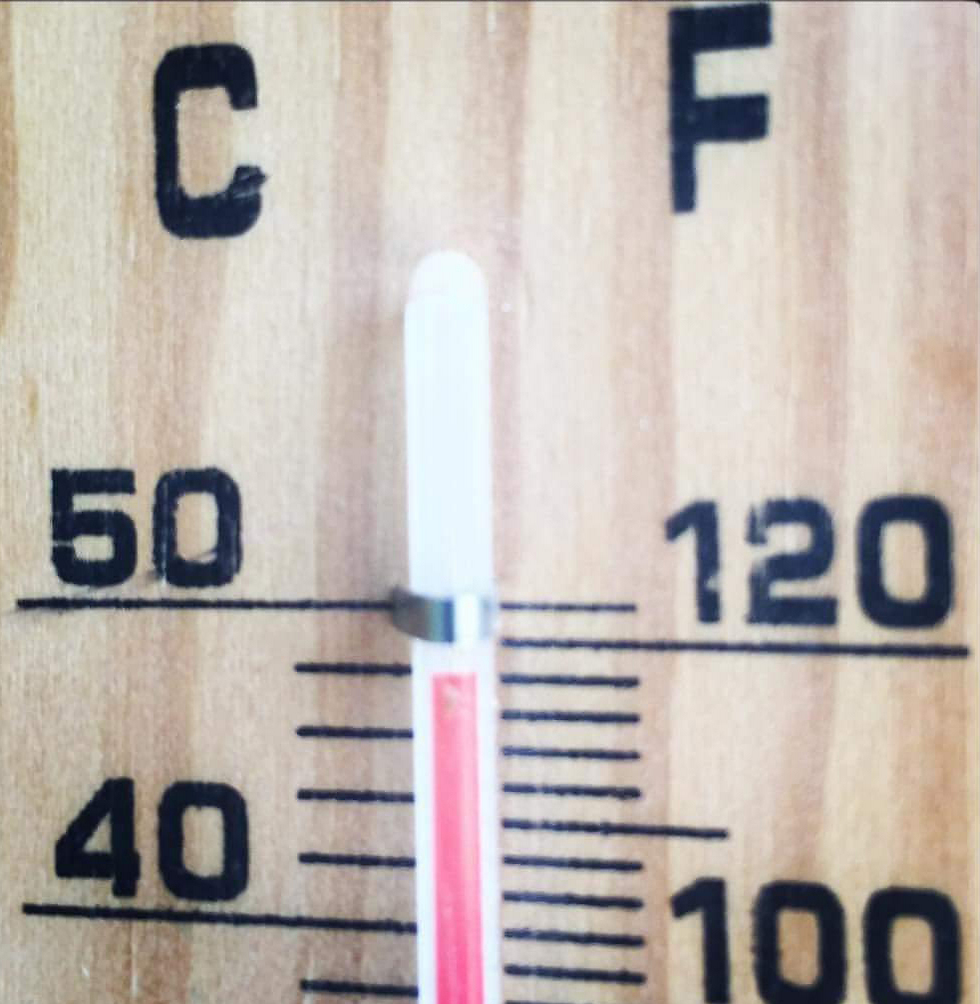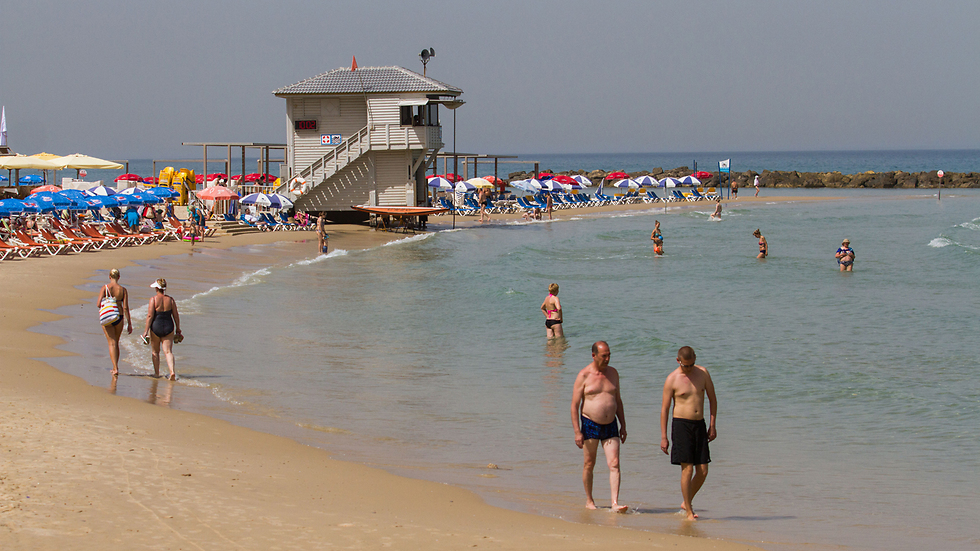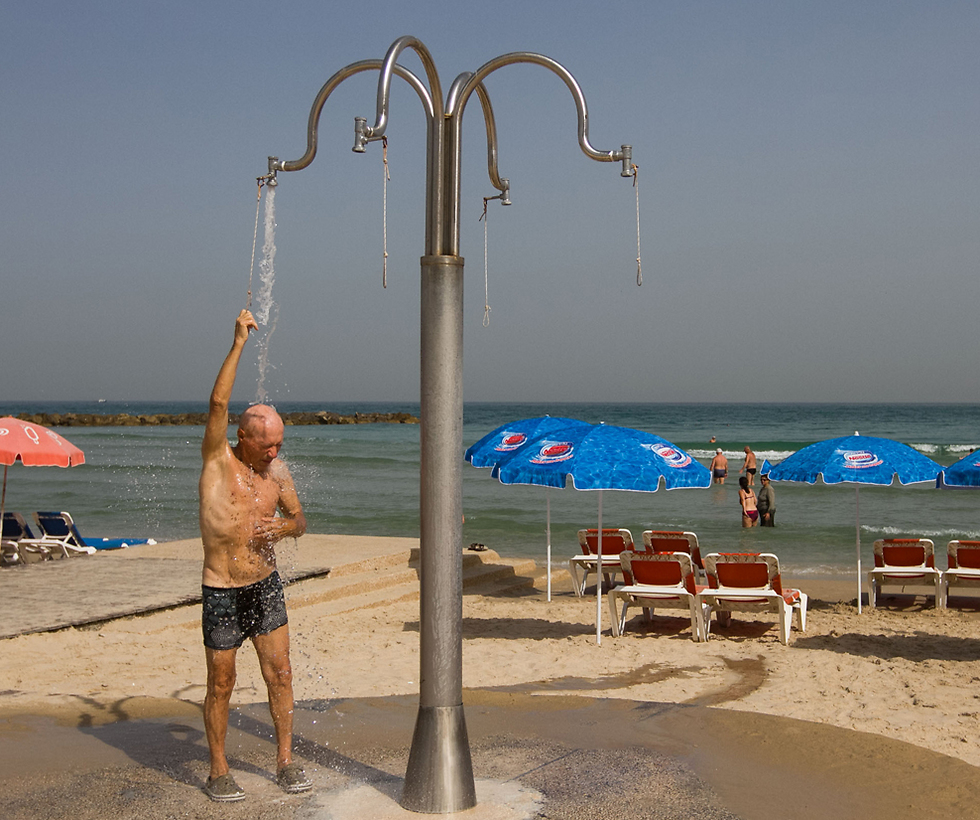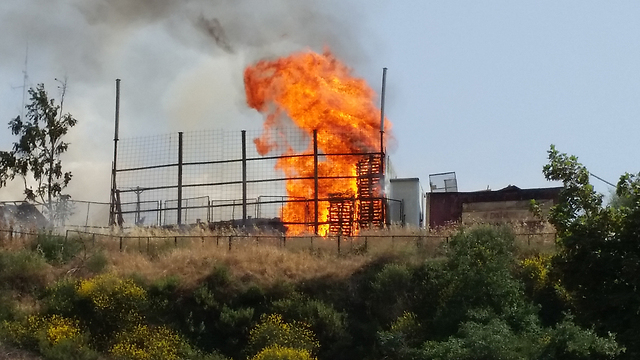
Cooling off at the beach
Photo: Ido Erez
The extreme heat wave that hit Israel over the weekend continued unabated on Monday with high temperatures remaining much as they were the previous day.
Kibbutz Yotvata in the Arabah area in the south once again registered the highest temperatures in the country with 47 °C. The southernmost city of Eilat experienced 46 °C, while kibbutz Gilgal in the Jordan Valley came in third with 45 °C. The Kinneret in the north and Be'er Sheva and kibbutz Beit HaArava in the south registered 42 °C, while Netanya and Kfar Saba experienced 40 °C, and Tel Aviv, Jerusalem and Safed noted "only" 36 °C.
Meteorologist Shlomo Oberman said the high temperatures in the coastal area and in Jerusalem were much more significant than the high temperatures in eastern Israel, as the latter are more typical of the season. He also noted that the spring heat wave, unlike the summer one, is characterized by high temperatures but low humidity. Case in point, humidity in Tel Aviv was only at 10 percent on Monday.
But the extreme heat did not stop people from leaving their homes, and many arrived at the county's beaches to cool off.
But while more people went to the beach on Monday than usual on weekdays, the number of visitors to forests and national parks was considerably low, according to KKL.
Like Sunday, the heat wave on Monday also caused fires to break out in various locations across the country. A fire broke in Jerusalem's Givat Shaul neighborhood, another in the Ramot neighborhood and a third in the entrance to the capital on Highway 1.
Some 500 dunams of vegetation burned in a fire that broke out in Kfar Uria in the Beit Shemesh area, while another blaze broke out near Highway 2 south of the Zikhron Ya'akov interchange.
After the electricity consumption record for the month of May was broken on Sunday at 3:26pm with 11,349 MW of electricity usage, it was broken once again on Monday at 3:19pm with 11,770 MW of electricity usage.
The all-time summer electricity consumption record was set on September 9, 2015, at 12,905 MW, while the winter record was set on January 26, 2015, at 12,624 MW.
The weather is expected to cool down in the coming days, with cloudy weather coming in Israel's direction from western Europe. On Tuesday, a significant drop in temperatures will be felt, accompanied by a spike in humidity, but temperatures will still be higher than the seasonal average - mostly in the valleys of eastern Israel.
Wednesday will be partly cloudy and see an additional drop in temperatures, returning them to average levels. This trend will continue on Thursday.
Omri Efraim, Ahiya Raved, Ra'anan Ben-Zur, Itay Blumental and Noam (Dabul) Dvir contributed to this report.






















